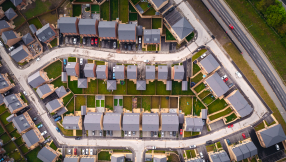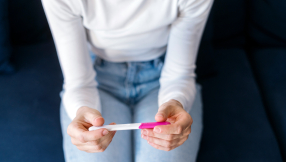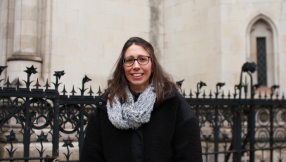
Lots of media outlets have been writing about how this pandemic has adversely affected disabled people, including; The BBC, Financial times, Mirror and many more. The comments after most of those articles are scary to read, especially if you are disabled yourself. Perhaps those comments point to just a few of the reasons why this disparity has happened.
The Health Foundation says in its report on this: "The pandemic has shone a light on pre-existing inequalities in the UK."
The Financial Times states that, "The UK's failure to protect those with learning disabilities from coronavirus deserves to be a national scandal."
And it is.
The list of areas where disabled people have been disproportionately affected is long and covers all areas of life: ongoing therapies, care, work, daily living – even being able to shop. Making cities Covid safe has made access even worse than it was before.
Over 59% of the deaths have been disabled people (but thought to be higher due to huge inconsistencies in reporting where disability is concerned). It is higher in every age grouping and across all disabilities – especially those with learning disabilities living in care homes or group homes.
Remarkably, the American CDC.gov website has this to say: "Most people with disabilities are not more likely to become infected with or have severe illness from COVID-19."
Many of us know that getting any infection adversely affects many disabilities, and the impact of getting Covid, however mildly, would be massive even after two vaccinations.
Care, including respite care, stopped for many disabled people as the Coronavirus Act removed the legal requirement for local authorities to provide that care.
Necessary provision of resources such as filters for portable ventilators, PPE for privately employed carers and much more have been unavailable.
Disabled people have been made to choose between their job and staying safe, even though government advice said we should work from home where possible or have the option of being furloughed. Many companies have refused any of these options for disabled employees, even when they could do their job just as well from home. The BBC wrote about this here.
Loss of regular and necessary therapies has had a massive impact on many.
Just living with a disability became more expensive – if you were lucky enough for regular treatment to continue, hospital transport wasn't working! This meant expensive taxis to and from appointments.
Delivery slots at supermarkets, if you could find them, were more expensive too. Many couldn't get the delivery slots that they had relied on before Covid because they had the wrong disability and were therefore not on the shielding list. This meant shopping in local stores because buses weren't an option – and shopping in local corner shops is more expensive.
The language around being clinically extremely vulnerable (CEV) has been confusing, and led to disabled people losing many vital things because they were either not disabled enough to be CEV, or had the wrong disability to be supported. For example, many disabled people, including those who are blind and therefore struggled with social distancing in shops, were not able to get the delivery slots they relied on pre-pandemic and were regularly turned away from supermarkets because "you can't socially distance".
All protections from diversity laws for disabled people seemed to be lost in favour of only CEV people, forgetting that not all disabled people are CEV or, if they were, they just didn't fit the government advice because disability in its own right was not considered at all.
In fact, all language has been unhelpful, giving the impression that those vulnerable to Covid who have died are 'acceptable losses'. This has led to many hurtful social media posts along these lines: "Old and disabled people need to move aside to let our children have their lives back. They have had their lives." This forgets that disability affects all ages, not just people over 60.
Not having BSL Interpreters at English government briefings was inexcusable. You could get it only on the BBC news channel, which not all people can access. If the English government had this done in the same way as Wales and Scotland, with the interpreter in view, it would have meant having BSL on all news channels and would have been helpful, as many people access news via social media.
I hope there will be a full inquiry into this, and I mean a full inquiry, with disabled people on the group who carry it out.
Then maybe, if there is another situation like Covid-19, lessons will have been learnt.
But I doubt it.
Kay Morgan-Gurr is Chair of Children Matter and Co-Founder of the Additional Needs Alliance, part of the Evangelical Alliance Council. She blogs at www.ThePonderingPlatypus.com. Follow her on Twitter @kaymorgan_gurr













